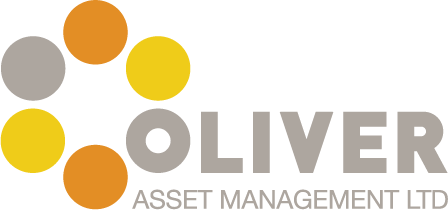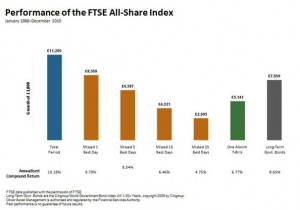When I explain to clients and other industry professionals that our investment philosophy is passive, I usually get the response “So you just use index tracking funds and don’t bother changing things if market conditions alter?”
This usually has the initial effective of getting my blood pressure up then once I’ve calmed down, I try to give my more measured, rational explanation.
So, I’ve laid out my thinking behind the philosophy that drives our passive investment strategies and why we use Dimensional Fund Advisers to create our risk-based portfolios.
Market efficiency and its offspring, passive investing, are counterintuitive for many investors. It is human nature to believe that you can beat the market (or identify someone who can) through intelligence, insight, and hard work. This belief is constantly reinforced by the City and most of the mainstream media. Yet even when you are able to firmly plant the seeds of information to overcome those beliefs and intuition, a passive investment approach may carry the negative connotation of inactivity if not properly explained.
Although Dimensional Fund Advisors are characterised by some as passive, it is only passive with respect to activities that don’t add value—mainly stock picking and market timing. You could argue that Dimensional is very active, however, in managing important considerations such as costs and consistent exposure to targeted risks or asset classes. With this in mind, I don’t think the categorisation of “passive” or “active” investing is as black and white as some suggest.
Here are some of the philosophies we share with Dimensional that may better explain the subtle differences.
Don’t speculate. Invest.
Rather than relying on speculation, blind faith, or anecdotal evidence, our philosophy rests on a solid foundation of core principles from the science of investing.
With capitalism there is always a positive expected return on capital.
Capital markets are very competitive due to voluntary exchange between buyers and sellers. There is a buyer for every seller; for markets to clear, prices will adjust to new information and reach a level where there is always a positive expected return to providers of capital. Investors would not risk their capital without the expectation of a positive return. We believe in Dimensional’s approach because they invest in a way that strives to capture a fair share of the capital market return based on the risk assumed.
It is difficult to identify superior investment managers in advance.
Capitalism breeds competition, and that makes markets difficult to beat. With millions of participants competing in capital markets, it is hard to identify in advance anyone who can systematically beat the market since past winners may have just been lucky and won’t necessarily win in the future. We believe in Dimensional’s approach because it eliminates the risk of choosing the wrong manager by following a broadly diversified approach that does not rely on stock picking or market timing.
Diversification is the only antidote for uncertainty.
Although diversification neither assures a profit nor guarantees against loss in a declining market, a properly constructed and well-diversified portfolio is a key component of a successful investment experience. Again, we believe in the Dimensional approach as they design portfolios that attempt to capture certain risks and eliminate others, depending on your preference and capacity for various types of risk.
There is no free lunch. Risk and return are related.
Higher expected returns only come from bearing more risk that cannot be diversified away. Much like a racing driver who chooses to drive without a helmet, you should not expect to be paid more for taking risks that can easily be avoided. Our approach at Oliver Asset Management focuses on eliminating risks that you should not expect a reward for taking, such as concentrating your portfolio in just a few stocks.
Control what you can.
If speculation is futile, and trying to choose winners is more often a loser’s game, what can an investor do? The answer is to concentrate on what can be controlled: managing the transactional costs of investing, reducing the impact of taxes, and taking a long-term view. Above all we approve of Dimensional’s approach because they implement portfolios in a way that is cost effective, tax efficient, and above all, disciplined.
Market efficiency and the active or passive decisions are loaded with misconceptions that can lead to debate and confusion rather than constructive dialogue and understanding. More importantly, it can distract our attention from the most crucial element of all: discipline!
It is this discipline that is one of the key advantages to having a good Wealth Manager. If part of the recipe for a successful investment experience is to stay the course, we can provide that key ingredient of educating you in these philosophies and keeping you disciplined through good times and not so good times.
The whole approach described above is our fundament investment belief at Oliver Asset Management and it’s a subject that I will continue to bring more information to you on in the coming weeks and months.
Roland Oliver

 In this blog I want to give you a quick overview of our investment beliefs at Oliver Asset Management, namely Evidence Based Investing.
In this blog I want to give you a quick overview of our investment beliefs at Oliver Asset Management, namely Evidence Based Investing.

